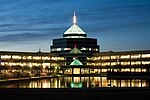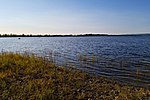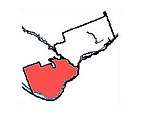Aylmer, Quebec

Aylmer is a former city in Quebec, Canada. It is located on the north shore of the Ottawa River and along Route 148. In January 2002, it amalgamated into the city of Gatineau, which is part of Canada's National Capital Region. Aylmer's population in 2011 was 55,113. It is named after Lord Aylmer, who was a governor general of British North America and a lieutenant governor of Lower Canada from 1830 to 1835. It bills itself as the "Recreation Capital of the National Capital", given its many golf courses, green spaces, spas, marina, and bicycle paths. There is little industry in the sector, the area being mainly residential. Virtually all the major shops, services, and restaurants are located along Chemin d'Aylmer. The sector's indoor swimming pool and skateboard park are also located on that road. The population of the Hull-Aylmer Federal electoral district, which combines the communities of Hull and Aylmer, was 105,419 in 2016. The 2016 census of Hull-Aylmer showed that the population was about 67% francophone, 18% anglophone, and 15% native speakers of other languages. Much of its workforce commutes across the river to Ottawa.
Excerpt from the Wikipedia article Aylmer, Quebec (License: CC BY-SA 3.0, Authors, Images).Aylmer, Quebec
Rue Conroy, Gatineau Aylmer
Geographical coordinates (GPS) Address Nearby Places Show on map
Geographical coordinates (GPS)
| Latitude | Longitude |
|---|---|
| N 45.4 ° | E -75.85 ° |
Address
Rue Conroy 53
J9H 5L7 Gatineau, Aylmer
Quebec, Canada
Open on Google Maps






